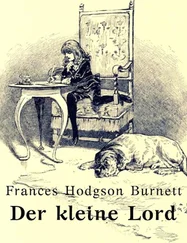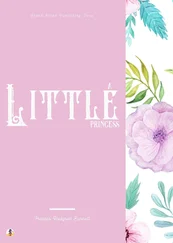When she began to speak Miss Minchin started quite violently and sat staring at her over her eyeglasses, almost indignantly, until she had finished. Monsieur Dufarge began to smile, and his smile was one of great pleasure. To hear this pretty childish voice speaking his own language so simply and charmingly made him feel almost as if he were in his native land--which in dark, foggy days in London sometimes seemed worlds away. When she had finished, he took the phrase book from her, with a look almost affectionate. But he spoke to Miss Minchin.
"Ah, madame," he said, "there is not much I can teach her. She has not LEARNED French; she is French. Her accent is exquisite."
"You ought to have told me," exclaimed Miss Minchin, much mortified, turning to Sara.
"I--I tried," said Sara. "I--I suppose I did not begin right."
Miss Minchin knew she had tried, and that it had not been her fault that she was not allowed to explain. And when she saw that the pupils had been listening and that Lavinia and Jessie were giggling behind their French grammars, she felt infuriated.
"Silence, young ladies!" she said severely, rapping upon the desk. "Silence at once!"
And she began from that minute to feel rather a grudge against her show pupil.
Chapter 3: Ermengarde
On that first morning, when Sara sat at Miss Minchin's side, aware that the whole schoolroom was devoting itself to observing her, she had noticed very soon one little girl, about her own age, who looked at her very hard with a pair of light, rather dull, blue eyes. She was a fat child who did not look as if she were in the least clever, but she had a good-naturedly pouting mouth. Her flaxen hair was braided in a tight pigtail, tied with a ribbon, and she had pulled this pigtail around her neck, and was biting the end of the ribbon, resting her elbows on the desk, as she stared wonderingly at the new pupil. When Monsieur Dufarge began to speak to Sara, she looked a little frightened; and when Sara stepped forward and, looking at him with the innocent, appealing eyes, answered him, without any warning, in French, the fat little girl gave a startled jump, and grew quite red in her awed amazement. Having wept hopeless tears for weeks in her efforts to remember that "la mere" meant "the mother," and "le pere," "the father,"-- when one spoke sensible English--it was almost too much for her suddenly to find herself listening to a child her own age who seemed not only quite familiar with these words, but apparently knew any number of others, and could mix them up with verbs as if they were mere trifles.
She stared so hard and bit the ribbon on her pigtail so fast that she attracted the attention of Miss Minchin, who, feeling extremely cross at the moment, immediately pounced upon her.
"Miss St. John!" she exclaimed severely. "What do you mean by such conduct? Remove your elbows! Take your ribbon out of your mouth! Sit up at once!"
Upon which Miss St. John gave another jump, and when Lavinia and Jessie tittered she became redder than ever--so red, indeed, that she almost looked as if tears were coming into her poor, dull, childish eyes; and Sara saw her and was so sorry for her that she began rather to like her and want to be her friend. It was a way of hers always to want to spring into any fray in which someone was made uncomfortable or unhappy.
"If Sara had been a boy and lived a few centuries ago," her father used to say, "she would have gone about the country with her sword drawn, rescuing and defending everyone in distress. She always wants to fight when she sees people in trouble."
So she took rather a fancy to fat, slow, little Miss St. John, and kept glancing toward her through the morning. She saw that lessons were no easy matter to her, and that there was no danger of her ever being spoiled by being treated as a show pupil. Her French lesson was a pathetic thing. Her pronunciation made even Monsieur Dufarge smile in spite of himself, and Lavinia and Jessie and the more fortunate girls either giggled or looked at her in wondering disdain. But Sara did not laugh. She tried to look as if she did not hear when Miss St. John called "le bon pain," "lee bong pang." She had a fine, hot little temper of her own, and it made her feel rather savage when she heard the titters and saw the poor, stupid, distressed child's face.
"It isn't funny, really," she said between her teeth, as she bent over her book. "They ought not to laugh."
When lessons were over and the pupils gathered together in groups to talk, Sara looked for Miss St. John, and finding her bundled rather disconsolately in a window-seat, she walked over to her and spoke. She only said the kind of thing little girls always say to each other by way of beginning an acquaintance, but there was something friendly about Sara, and people always felt it.
"What is your name?" she said.
To explain Miss St. John's amazement one must recall that a new pupil is, for a short time, a somewhat uncertain thing; and of this new pupil the entire school had talked the night before until it fell asleep quite exhausted by excitement and contradictory stories. A new pupil with a carriage and a pony and a maid, and a voyage from India to discuss, was not an ordinary acquaintance.
"My name's Ermengarde St. John," she answered.
"Mine is Sara Crewe," said Sara. "Yours is very pretty. It sounds like a story book."
"Do you like it?" fluttered Ermengarde. "I--I like yours."
Miss St. John's chief trouble in life was that she had a clever father. Sometimes this seemed to her a dreadful calamity. If you have a father who knows everything, who speaks seven or eight languages, and has thousands of volumes which he has apparently learned by heart, he frequently expects you to be familiar with the contents of your lesson books at least; and it is not improbable that he will feel you ought to be able to remember a few incidents of history and to write a French exercise. Ermengarde was a severe trial to Mr. St. John. He could not understand how a child of his could be a notably and unmistakably dull creature who never shone in anything.
"Good heavens!" he had said more than once, as he stared at her, "there are times when I think she is as stupid as her Aunt Eliza!"
If her Aunt Eliza had been slow to learn and quick to forget a thing entirely when she had learned it, Ermengarde was strikingly like her. She was the monumental dunce of the school, and it could not be denied.
"She must be made to learn," her father said to Miss Minchin.
Consequently Ermengarde spent the greater part of her life in disgrace or in tears. She learned things and forgot them; or, if she remembered them, she did not understand them. So it was natural that, having made Sara's acquaintance, she should sit and stare at her with profound admiration.
"You can speak French, can't you?" she said respectfully.
Sara got on to the window-seat, which was a big, deep one, and, tucking up her feet, sat with her hands clasped round her knees.
"I can speak it because I have heard it all my life," she answered. "You could speak it if you had always heard it."
"Oh, no, I couldn't," said Ermengarde. "I never could speak it!"
"Why?" inquired Sara, curiously.
Ermengarde shook her head so that the pigtail wobbled.
"You heard me just now," she said. "I'm always like that. I can't say the words. They're so queer."
She paused a moment, and then added with a touch of awe in her voice, "You are clever, aren't you?"
Sara looked out of the window into the dingy square, where the sparrows were hopping and twittering on the wet, iron railings and the sooty branches of the trees. She reflected a few moments. She had heard it said very often that she was "clever," and she wondered if she was--and if she was, how it had happened.
"I don't know," she said. "I can't tell." Then, seeing a mournful look on the round, chubby face, she gave a little laugh and changed the subject.
Читать дальше












